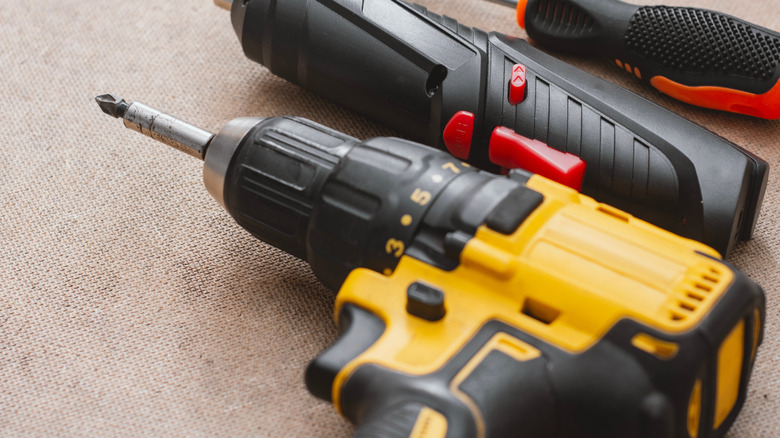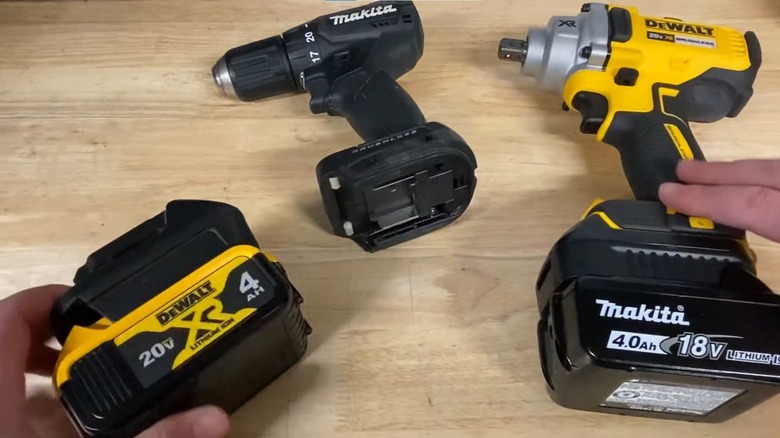Power Tool Battery Adapters: What To Consider Before Using Them
Perhaps this has happened to you: You're in the middle of a DIY project and the battery on one of your power tools dies. You're down in your basement, your regular replacement battery for that tool is in the garage, and you're not even sure if it's fully charged. You think, "Wouldn't it be nice to replace the dead battery with a good one from some other tool, even if it's from a different brand?" Sadly, no power tool batteries are compatible with each other. There are battery adapters that allow you to use one manufacturer's battery on another manufacturer's tools, but are they worth it, and are they safe? Turns out you're probably better off looking for multi-tool combo kits from a single manufacturer, so you never have that problem again.
The main benefit of adapters is their convenience: Connect the adapter to battery and tool, and you're back to work. An adapter is likely a lot lighter than the spare battery that you otherwise might have to lug around on your worksite. You don't have to keep as many batteries charged, so you can have fewer batteries and chargers in your storage area, knowing that you can always use another tool's battery in a pinch. And when one battery dies, you aren't adding to the growing e-waste problem by buying another one from that brand when you can just use another brand's battery that's already available.
The downsides of power tool battery adapters
But are battery adapters really all that convenient? Each battery is made to its own specifications, both physical and electronic, from its form factor to its discharge rate, energy density, and so on, so there's no such thing as a universal battery adapter. You may need one adapter to convert a Milwaukee battery to use on a Dewalt tool, and another adapter to convert a Dewalt battery to a Milwaukee tool, a third to convert Ryobi to Milwaukee, a fourth to convert Dewalt to Ryobi, and so on. Ultimately, you may end up with more clutter in your work area than before. Thus, instead of reducing e-waste, you're just adding more of it to your home.
Adapters also come with risks. Some tool manufacturers make interchangeable batteries that you can use with different tools that they make, but as you can imagine, no company is going to make adapters that allow you to use another manufacturer's batteries on their tools (or vice versa). Their tools are designed to use their batteries, and batteries from some other company might damage the tools. So as a result, you'll only find adapters manufactured by third parties. Those third parties may warranty their own adapters, but they are not likely to replace your power drill if their adapter burns out its motor. Even if an adapter says it will allow you to replace one company's 20-volt battery with another's, that doesn't mean the wiring in all three components (tool, battery, adapter) is capable of handling the amperage (the rate of flow of electrons from one component to another). You could end up with fried wires or even a battery fire.

